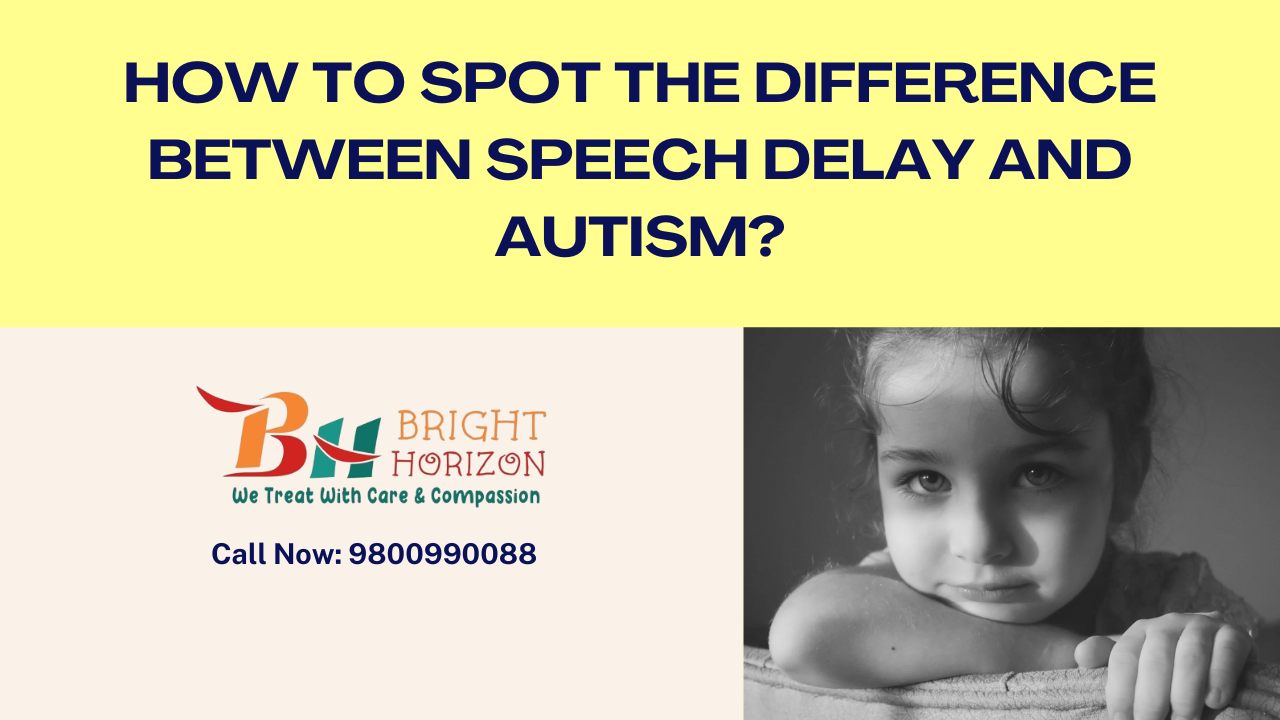The first three years of life are critical for speech and language development, and it’s not unusual for children to face delays during this time. A delay occurs when a child doesn’t reach the typical developmental milestones for their age. When parents notice this, they may worry that a speech or language delay could be a sign of autism.
There are many potential causes for speech and language delays, and sometimes identifying the exact reason can be challenging. While speech and language delays, as well as learning differences, are often observed in children with autism, being a late talker alone does not necessarily indicate autism. In this blog post, we’ll discuss how speech therapy and autism treatment in Jalandhar at Bright Horizons can help your child with speech delay or autism.
What if your child struggles with a speech or language delay?
If you are worried about your child’s communication, start by talking to a speech therapist at Bright Horizons. Early speech therapy is essential for children struggling with speech or language delays. Research shows that starting therapy early can help children catch up to their peers and communicate more effectively. If your child is diagnosed with autism, speech therapy will be recommended. It can help improve verbal and nonverbal communication, understanding of body language, asking and answering questions, and developing conversational skills, all of which support daily functioning and authentic communication.
You can call us or WhatsApp for More Details @ our Customer Care Number +91-9800-9900-88
What’s the difference between speech and language delays?
Before exploring the specific signs of autism, it’s important to understand the difference between speech and language delays. While these terms are often used interchangeably and share some similarities, there are important differences that every parent should be aware of.
Speech indicates how children use sounds and words to express their needs, wants, and feelings. Children with delayed speech still progress through typical developmental stages, but usually at a slower pace compared to their peers. If your child struggles with speech delays, our speech therapist in Jalandhar at Bright Horizons can help.
A language delay doesn’t affect how children physically produce sounds, but rather what they are saying. While children may be able to pronounce sounds and words correctly, they struggle to use these words to form clear phrases or sentences. This is known as an expressive language delay. Additionally, a receptive language delay can affect a child’s ability to comprehend what others are saying.
What are the key differences between communication delays and autism?
A speech or language delay doesn’t automatically mean a child has autism. Let’s explore some of the differences between communication delays and autism.
As mentioned earlier, children with communication delays generally follow the same developmental path as their peers, but at a slower pace. They take longer to reach age-appropriate milestones.
However, these children are still highly motivated by social interactions. They seek physical closeness, like being held, touched, or hugged by their parents. They respond positively to attention and imitate the actions of others and can feel bored, upset, or lonely when left alone. In short, even if a child has a speech or language delay, they are still very social beings.
Autistic children often prefer to engage with their own interests and may enjoy being left to explore them independently. They are generally more focused on objects than on people and rarely mimic others’ actions. They may also find it difficult to understand or use nonverbal communication, such as smiling, gestures, or facial expressions.
Conclusion
Early identification and support are crucial for children with speech delays and autism. With the right intervention, children can make significant progress in their communication skills. If your child has speech delay or autism, you can reach out to Bright Horizons.
You can call us or WhatsApp for More Details @ our Customer Care Number +91-9800-9900-88

